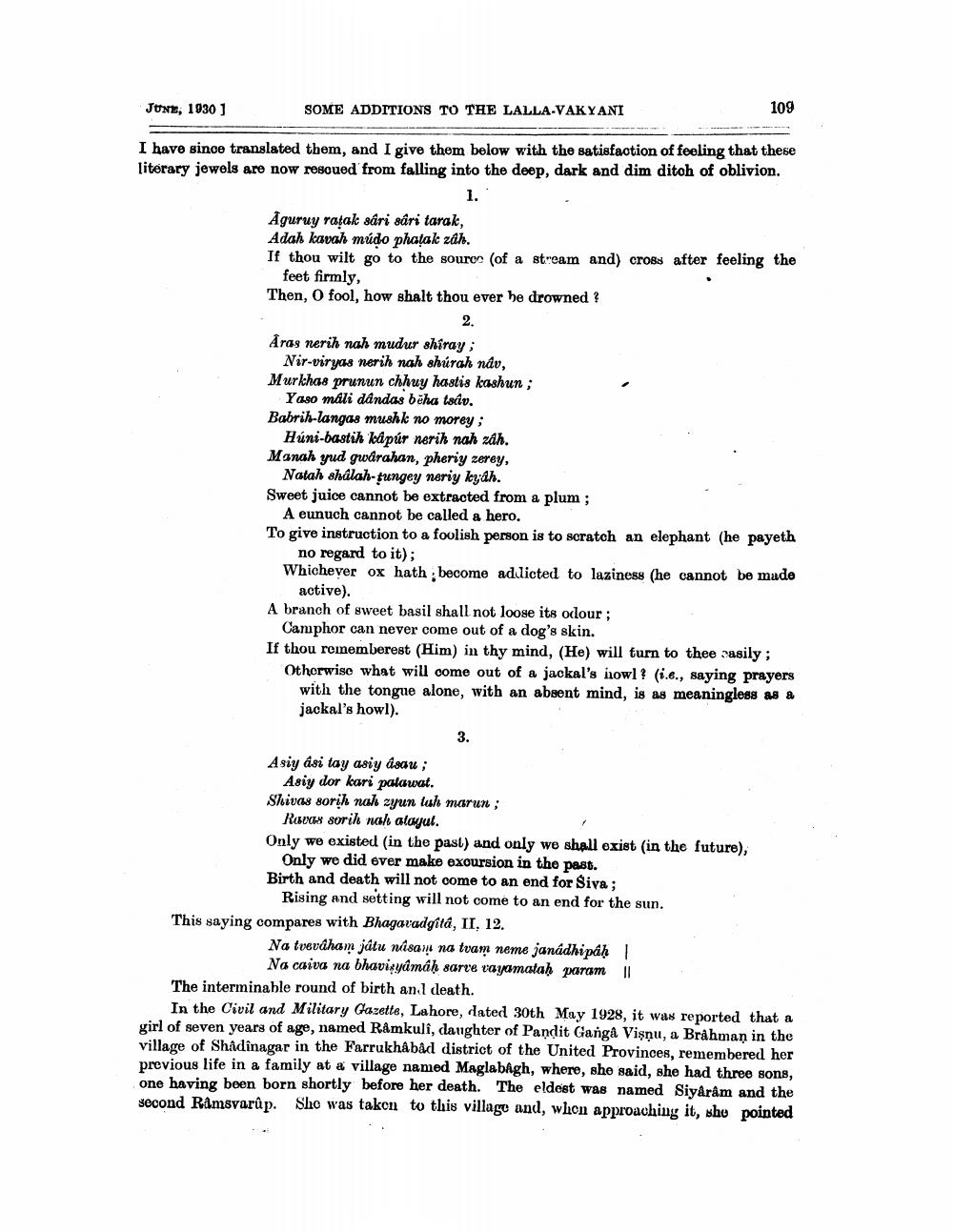________________
JUNE, 1930 1
SOME ADDITIONS TO THE LALLA-VAKYANI
109
I have since translated them, and I give them below with the satisfaction of feeling that these literary jewels are now rescued from falling into the deep, dark and dim ditoh of oblivion.
l." Aguruy ratak sári sári tarak, Adah kavah múdo phaçak záh. If thou wilt go to the sourer (of a stream and) cross after feeling the
feet firmly, Then, O fool, how shalt thou ever be drowned ?
Aras nerih nah mudur shiray;
Nir-viryas nerih nah shúrah nav, Murkhas prunun chhuy hastis kashun;
Yaso mali dandas böha isciv. Babrih-langas mushk no morey;
Húni-bastih kapúr nerih nah záh. Manah yud gwarahan, pheriy zerey,
Natah shalah-tungey neriy kyah. Sweet juice cannot be extracted from a plum;
A eunuch cannot be called a hero. To give instruction to a foolish person is to scratch an elephant (he payeth
no regard to it); Whichever ox hath become addicted to laziness (he cannot be made
active). A branch of sweet basil shall not loose its odour;
Camphor can never come out of a dog's skin. If thou rememberest (Him) in thy mind, (He) will turn to thee sasily; Otherwise what will come out of a jackal's howl? (.e., saying prayers
with the tongue alone, with an absent mind, is as meaningless as a jackal's howl).
3.
Asiy asi tay asiy asau;
Asiy dor kari palawat. Shivas sorik nah zyun luh marun;
Roxas sorik nak alajul. Only we existed in the past) and only we shall exist in the future),
Only we did ever make exoursion in the past. Birth and death will not come to an end for Siva;
Rising and setting will not come to an end for the sun. This saying compares with Bhagavadgitá, II, 12.
Na tveváham játu nisam na tvam neme janadhipáh
Na caiva na bhavigyámah sarte rayamatah param || The interminable round of birth and death.
In the Civil and Military Gazette, Lahore, dated 30th May 1928, it was reported that a girl of seven years of age, named Ramkuli, daughter of Pandit Ganga Vişnu, a Brahman in the village of Shadînagar in the Farrukhabad district of the United Provinces, remembered her previous life in a family at a village named Maglabagh, where, she said, she had three sons, one having been born shortly before her death. The eldest was named Siyârâm and the second Ramsvarup. She was taken to this village and, wlion approaching it, she pointed




